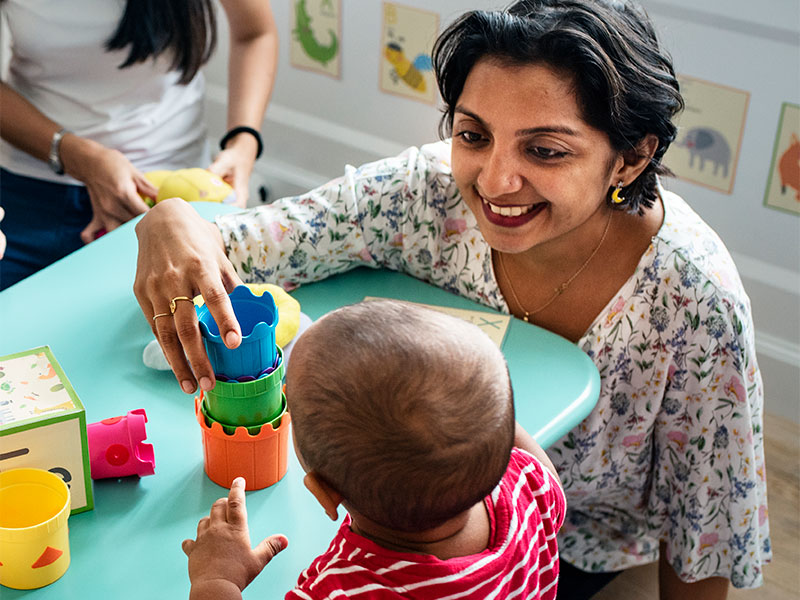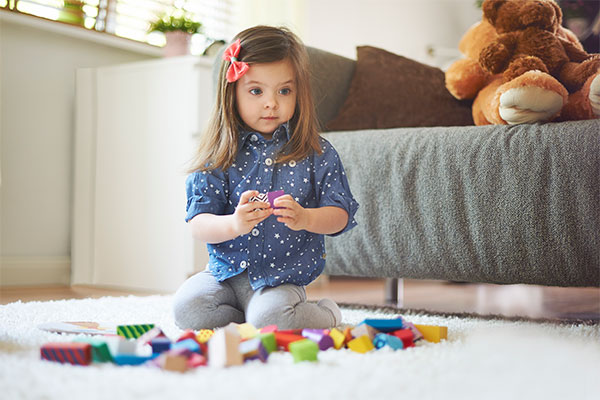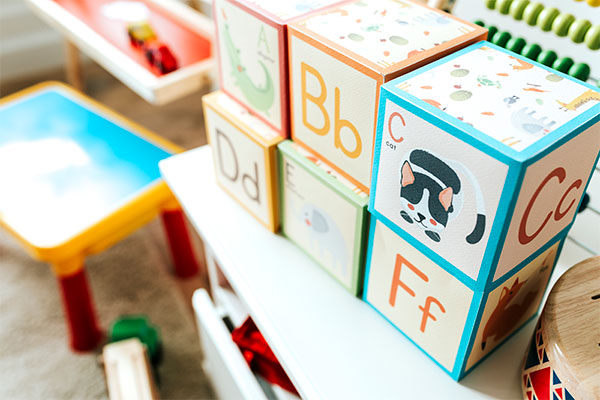Do you know that preschoolers' cognitive development is primarily concerned with the processing of information, including decision-making, attention, memory, language skills, learning, and perceptual abilities? The brain of your youngster needs a lot of thinking and exploration since it develops rapidly. Need more information on these abilities? Come! Let's look at all you can do in this article on cognitive activities for preschoolers to help your child reach their cognitive milestone.
What is Cognitive Development?
A child's capacity for research, curiosity, and problem-solving is referred to as cognitive development. Children's ability to consider and comprehend their surroundings is aided by the development of information, skills, problem-solving, and attitudes. Cognitive development includes the development of the brain.
Cognitive Development of a Preschooler:
Your child's cognitive abilities start to mature when they enter preschool age (3 to 5 years). They may not finish a puzzle or play a game all the way through since their attention spans are limited. But by the time kids start kindergarten, they need to be able to solve a puzzle, play a whole game, and start learning the proper ways to lose and win fairly.
Whether your kid goes to preschool or just plays at home, they develop linguistic skills, gross motor coordination, social skills, and a broader awareness of their environment as they get ready for kindergarten. They may not fully comprehend the distinction between reality and fiction, but they are better able to perceive and comprehend their environment.
During this period of development, kids are learning constantly. Always observing, investigating, and speculating. Preschoolers typically have inquiries, particularly ones that start with “Why.” They can start asking sensitive questions about death, the origins of children, or upsetting things they see or hear. It might be advisable to enroll them in the best personality development school to sharpen their abilities.
Cognitive Activities That Advance a Preschooler's Cognitive Growth:
By providing engaging and entertaining cognitive tasks, you may promote your child's cognitive learning. There is no set schedule or lesson plan needed. Just enough time to play alone and with others, extending their experiences.
1. Puzzles:
Puzzles that are suitable for children's ages improve focus, memory, problem-solving, and critical thinking abilities. Puzzles can also help to teach color, type, and shape sorting. Cognitive control is supported by selecting a puzzle, focusing on it, and finishing it.
2. Card matching games or board games:
Games like card matching or board games may help youngsters learn how to cooperate, share, take turns, and solve problems. You might include more challenging strategy games, like checkers. When they encounter a challenge while playing, your child's capacity for reasoning, judgment, and problem-solving is pushed to its limits.
Visit: online brain games for kids
3. Block play:
Block play allows preschoolers to have fun while simultaneously learning about science and math. Children learn the concepts of broader, shorter, taller, higher, longer, heavier, and more when they stack or play with wooden construction blocks. You may see how children's block buildings develop as they move through the phases of block play.
4. Constructive play:
Constructive play is about exploring various materials and construction methods. Trial and error methods are how preschoolers learn to organize and evaluate their behaviors. Problem-solving at its finest involves trying out novel techniques and adapting as necessary.
Visit: benefits of socialization for students
5. Rhyming:
Simple songs with rhymes and motions aid in the development of cognitive abilities; for instance, the "ABC's Song" helps children recall the alphabet. They gain direction-following skills through singing songs like "Head and Shoulders" or "I'm a Little Teapot." Songs like "5 Little Ducks" and "5 Monkeys Jumping on the Bed" explain numerical ideas.
6. Reading:
For preschoolers' cognitive development, daily reading is essential. Check out your local library or bookshop to foster a love of literature in your children. They begin to truly acquire a sense of humor at this age. Find a book of jokes, or ask them to tell you some jokes to get them talking.
7. Storytelling:
Encourage storytelling by either asking them to complete a narrative you started or adding to one you are already working on. Include easy yet effective language exercises for preschoolers in your daily play.
8. Cooking:
Ask your young child to assist you in the kitchen. They may start picking up skills like measuring, following directions, and using nutritious ingredients. They may develop their reading and language abilities while understanding recipe instructions by looking at the photos.
9. Outdoor activities:
You can spend some time at the park. Playing physical games is a great way to interact. Try out hide-and-seek games. Going outside promotes the development of cognitive as well as gross motor abilities. For young children, nature serves as an excellent scientific laboratory. Make a nature tray, take a stroll, or start a nature notebook.
10. Roleplay:
Preschoolers often have a natural affinity for roleplay. It is the best method for fostering their imaginations and creative abilities. Through these activities, personality development for kids can be enhanced. You may probably catch your kid acting out a fantasy role like a princess, pirate, or superhero. They may, however, also act out well-known roles like going to the store, doing the dishes, or cleaning the house.
The complexity of this roleplay is entirely up to you. Occasionally include simple dress-up accessories like worn-out hats, pouches, or shoes. You may require a crown, a sword, or a magic wand. Engage the youngsters in some creative projects using construction paper or paper towel rolls. You can build a fort out of big blocks, or cover tables and chairs with a blanket.
In conclusion, let your preschooler take the lead whenever you interact with them, whether it is during outdoor activities, unstructured free play, or cognitive activities like block play. Talking, reading, or playing a game are examples of everyday activities that might help children's cognitive growth and development. Try these cognitive activities for preschoolers to help your kid accomplish their cognitive milestone!




Comments
Post a Comment